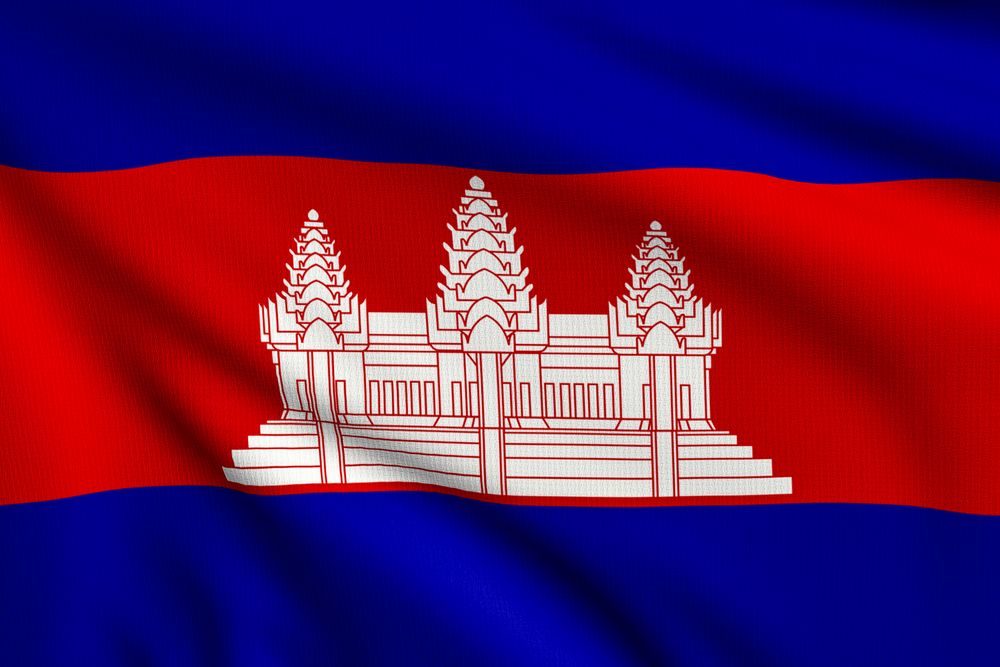Tensions Run High between an Increasingly Nationalist Cambodia and Vietnam

Please note that we are not authorised to provide any investment advice. The content on this page is for information purposes only.
To strengthen national unity and identity, Cambodian leaders have for generations tried to construct, or reconstruct, nationalist ideology around Cambodia’s enduring border disputes. The border disputes have become the main topic in Cambodian domestic politics and foreign policy since Cambodia gained independence from France in 1953. The disputes are the result of the unclear frontier demarcation by the colonial administration, and they have led to armed conflicts between Cambodia and its neighbours.
To strengthen national unity and identity, Cambodian leaders have for generations tried to construct, or reconstruct, nationalist ideology around Cambodia’s enduring border disputes. The border disputes have become the main topic in Cambodian domestic politics and foreign policy since Cambodia gained independence from France in 1953. The disputes are the result of the unclear frontier demarcation by the colonial administration, and they have led to armed conflicts between Cambodia and its neighbours.
Some political leaders have gone too far and become ultra-nationalist. In Cambodia’s electoral democracy, some political parties have promoted a type of nationalism that positions itself explicitly against the country’s bigger neighbours to gain popular political support. A lack of political transparency, understanding and participation has made the public more vulnerable to populist and nationalist policy agendas.
Anti-Vietnam nationalism and a perceived Vietnamese threat gained momentum since 2009, when the current opposition leader Sam Rainsy allegedly encouraged villagers to uproot border markers on the Cambodia–Vietnam border in Svay Rieng province. The border disputes intensified after lawmakers from the opposition Cambodia National Rescue Party (CNRP) led a few hundred activists to the to-be-demarcated border region in northeastern provinces, leading to clashes and violence in June.
Compounding the border tension is an anti-Vietnamese political rhetoric that has gained steam since the general election in July 2013. The opposition parties have accused the government under the leadership of the Cambodian People’s Party (CPP) of being under strong influence from Hanoi, of ceding territory to Vietnam and of allowing Vietnamese immigrants to illegally enter and work in Cambodia. Since April 2014, more than 2000 illegal Vietnamese immigrants have been deported. The opposition parties will continue to use the ‘Vietnam threat’ factor as a key part of its strategy to gain popular votes in the upcoming commune election in 2017 and the national election in 2018.
The stance of Cambodian opposition parties, including the CNRP, further complicates border negotiations, with Vietnam. In 1985, Cambodia and Vietnam signed a treaty on border delimitation. In 2005, both sides reached another complementary treaty on border issues. However, Cambodia’s opposition parties deemed these agreements illegitimate and rejected them.
On 9 June 2015, amid the renewed border tension between two countries, Cambodian Prime Minister Hun Sen asked Vietnam to maintain peace and stability along the border during his meeting with Le Hong Anh, a member of the politburo of the Vietnamese Communist Party, in Phnom Penh. A few days later, Cambodia’s Ministry of Foreign Affairs and International Cooperation sent two diplomatic notes, dated 12 June and 14 June, to protest Vietnam’s violation of Cambodian territory. Vietnam did not respond and accused ‘extremist groups’ in Cambodia of provoking the border tensions and clashes.
A key issue fuelling domestic opposition in Cambodia is allegations that the Cambodian government maps, used in its border negotiations with Vietnam are fake or inaccurate. In July 2015, to ‘verify the authenticity of maps’ being used by the Cambodian government, Hun Sen requested that the United Nations, France, the United Kingdom and the United States loan Cambodia the original maps that were prepared by France during the colonial period. After verifying the maps received from the UN and France, the Cambodian government confirmed the authenticity of the maps used to conduct border negotiations with Vietnam.
The Cambodian government has now called for an end to the politicisation of the maps and border disputes with Vietnam. Foreign Minister Hor Namhong stated, ‘The maps issue must be finished at this time. …We don’t want political parties using the border issue to incite people to go against the government.’
Instead, the Cambodian government tasked a group of technical experts to compare the borders detailed on these maps with the existing border markers. The Royal Academy of Cambodia was tasked with conducting objective research on border demarcation and providing policy recommendations. The Academy expects to finish their research within the next two years.
Border-related political tensions between the government and opposition party have not receded. A number of people have been arrested for trying to stir anti-Vietnam nationalism by accusing the government of using fake border maps. In August, they arrested CNRP Senator Hong Sok Hou for posting a fake version of the bilateral treaty between Cambodia and Vietnam in 1979 on his personal Facebook page. The fake treaty in the Facebook post purported that Heng Samrin, Cambodia’s then head of state, had proposed to dissolve the border between Cambodia and Vietnam. Hong Sok Hou is now in court for trial.
The border disputes will continue as long as domestic political dynamics in Cambodia continue to evolve around assertive nationalism. The border negotiations and demarcation process between Cambodia and its neighbours, needs more transparency and public participation. In the absence of these checks, the public will remain vulnerable to political manipulation.
How Cambodian nationalism is driving border disputes with Vietnam is republished with permission from East Asia Forum




